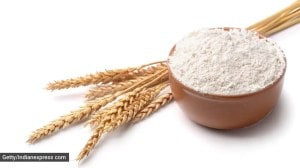King Fahd dead, Abdullah takes over
Saudi Arabia’s King Fahd died on Monday and Crown Prince Abdullah was swiftly pronounced monarch in a smooth succession set to maintain...

Saudi Arabia’s King Fahd died on Monday and Crown Prince Abdullah was swiftly pronounced monarch in a smooth succession set to maintain the policies of the world’s largest oil exporter and key US ally.
King Fahd, aged 84, had been in hospital since May 27, when he was admitted with acute pneumonia. Saudi Information Minister Iyad bin Amin Madani announced Fahd’s death on state television, saying the royal family had acknowledged Abdullah as the new sovereign and accepted his choice of Prince Sultan as crown prince.
King Abdullah has daily affairs since a stroke debilitated Fahd in 1995. The kingdom’s next ambassador to Washington, who is a senior royal, said the new king would not alter oil and foreign policies.
‘‘I cannot imagine there will be any particular change in that (foreign) policy undertaken by the late King Fahd,’’ said Prince Turki al-Faisal, outgoing ambassador to Britain. Asked whether the same applied to the kingdom’s oil policy, Prince Turki said, ‘‘Absolutely.’’
A Saudi official said Fahd’s funeral would take place on Tuesday to give time for foreign dignitaries to arrive.
But there will be no mourning period, in line with strict Wahhabi Muslim tradition that unquestionably accepts God’s will. Saudi flags will not be lowered as Wahhabis deem this blasphemous.
On Monday, recitations of the Koran echoed from mosques, radios and television sets here, but shops and businesses remained open as Saudis accepted Fahd’s long-expected death.
Prayers for Fahd’s soul are due to be said at the Imam Turki bin Abdullah mosque in Riyadh on Tuesday. Saudis are to pledge allegiance to the new king and his crown prince on Wednesday.
Abdullah is expected to choose a deputy crown prince. Diplomats tip Interior Minister Prince Nayef (72) or Riyadh provincial governor Prince Salman (69) as his likeliest choice.
Fahd ascended the throne in June 1982, at the height of Saudi Arabia’s petrodollar boom and reigned for 23 years.In the past two years, the kingdom has faced a violent Al Qaeda campaign to end seven decades of the royal family’s rule in the home of Islam’s holiest shrines.
Fahd’s strong alliance with Washington and his decision to allow US forces to deploy in Islam’s birthplace in 1990 enraged Saudi-born Al Qaeda leader Osama bin Laden. The troops remained until the 2003 invasion of Iraq. Bin Laden has vowed to depose the Saudi royals, whom he has blasted as US ‘‘agents and stooges’’.
A US State Department official said Fahd’s death would have little effect on bilateral ties. ‘‘The death is not going to have any negative impact on our relations with the kingdom,’’ said the official, who asked not to be named.
Condolences flooded in from around the world. French President Jacques Chirac said Fahd had ‘‘guaranteed the integrity of his country and defended regional stability’’. British Prime Minister Tony Blair hailed his ‘‘great vision and leadership’’.
Several countries including Pakistan announced periods of mourning and flew flags at half-mast. An Arab League official said an Arab summit in Egypt, set for Wednesday, would be deferred for up to a week.
Energy and financial analysts predicted that Fahd’s death would have no major impact on the Saudi economy, now booming on strong oil prices.
The stock market, the largest Arab bourse, briefly suspended trading but rebounded after early declines.
—Reuters







- 01
- 02
- 03
- 04
- 05
























